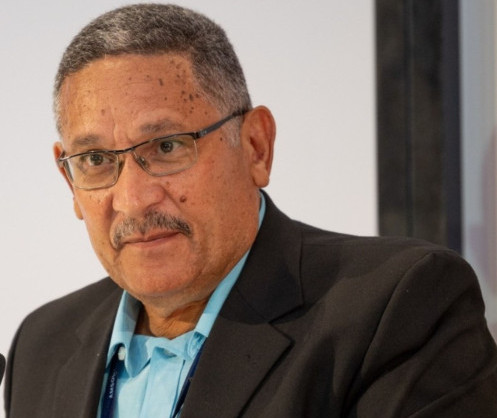The shift to cleaner energy must be structured in a way that allows Africa to grow sustainably without compromising its ability to provide reliable power, create jobs, and strengthen its industries
By Adrian Strydom, Chief Executive Officer of the South African Oil and Gas Alliance (www.SAOGA.org.za).
Africa is at a turning point in its energy journey. As cities expand and industries grow, the demand for electricity is rising fast. By 2040, Africa will need nearly 1,200 gigawatts of power, yet 600 million (http://apo-opa.co/45H0Lq6) people still lack electricity, holding back development, healthcare, and education.
This creates a major challenge: How can Africa expand energy access without locking itself into high-emission fuels? The solution must balance affordability, sustainability, and reliability. While solar and wind power are critical, most countries lack the infrastructure to rely on them alone. Grids must remain stable, industries need steady energy, and cross-border trade requires a consistent supply. Natural gas plays a vital role in this—acting as a bridge to cleaner energy while meeting urgent electricity needs.
Africa houses about 7% (http://apo-opa.co/3FCgMTO) of the world’s proven natural gas reserves, and production has increased by over 70% since 2000, with forecasts predicting 520 billion (http://apo-opa.co/3FCgMTO) cubic meters by 2050.
Several African countries are already benefiting from utilising natural gas reserves.
Nigeria, Africa’s largest gas producer, has over 200 tcf of reserves, supporting millions of jobs across extraction, processing, and transportation. The Greater Tortue Ahmeyim (GTA) project in Senegal and Mauritania is attracting billions in investment, strengthening energy security. South Africa, facing a “gas cliff” due to declining imports, is exploring its local reserves to protect industrial growth. Mozambique’s Coral Sul floating LNG platform has already started production, with revenue projections reaching around $70 million annually between 2025 and 2027. Meanwhile, the Mozambique LNG and Rovuma LNG projects hold immense potential, boasting over 100 trillion cubic feet of recoverable gas, though they remain in early development stages.
“Africa houses about 7% of the world’s proven natural gas reserves, and production has increased by over 70% since 2000, with forecasts predicting 520 billion cubic meters by 2050 “
Many African countries produce only a small fraction of global emissions, yet they withstand the worst of climate change, facing extreme droughts, floods, and food insecurity. Expecting them to abandon fossil fuels without practical alternatives could slow economic development and widen inequalities. A fair energy transition must acknowledge that countries have different economic conditions and needs than major polluters. The shift to cleaner energy must be structured in a way that allows Africa to grow sustainably without compromising its ability to provide reliable power, create jobs, and strengthen its industries.
Currently, many African countries don’t have the infrastructure to rely on renewables alone. Power grids are weak, underfunded, and often unreliable. The main challenge with solar and wind energy is that they depend on the weather. If the sun isn’t shining or the wind isn’t blowing, power generation drops, causing disruptions. Batteries can store excess energy for later use, but large-scale storage technology is still too expensive and not widely available.
This is where natural gas plays a crucial role. Natural gas and renewables complement each other to form a balanced and resilient energy mix. Gas provides the flexibility to fill in the gaps when renewable output is low, ensuring a constant and stable electricity supply. Additionally, gas-fired plants can ramp up quickly to meet demand and are more responsive than coal, making them ideal partners for intermittent energy sources.
It is noteworthy that the infrastructure built for natural gas today, such as pipelines and generation facilities, can even be repurposed to carry cleaner fuels like green hydrogen. This synergy allows African countries to continue scaling up renewables with confidence, knowing that natural gas is there to provide reliability, bridge energy gaps, and support the transition toward a low-carbon future.
Natural gas has been a key transitional energy source worldwide. In Africa, its role is even more critical. The continent has vast gas reserves, yet much of its potential remains untapped due to limited infrastructure investment and regulatory uncertainty. If developed strategically, natural gas can drive industrial growth, strengthen energy security, and create the capacity needed for long-term investment in renewable energy. However, unlocking this potential requires coordinated action.
Expanding gas infrastructure requires long-term investment in pipelines, processing plants, and export terminals, which take years to build. Investors need policy clarity and predictable returns, so governments must offer stable tax structures, licensing agreements, and local value retention policies to keep revenues in African economies.
Africa’s energy future must grow in a way that works for its people. Electricity must remain accessible for homes, businesses, and industries while innovative technologies develop. This is not a choice between gas and renewables – it is about using the right tools at the right time. Natural gas is a cornerstone of an orderly and just transition.
With careful planning, natural gas can support Africa’s economy today while building the foundation for a cleaner, more resilient future.



Comments are closed, but trackbacks and pingbacks are open.